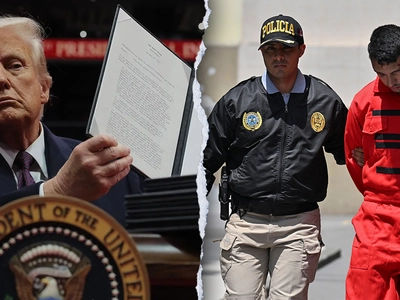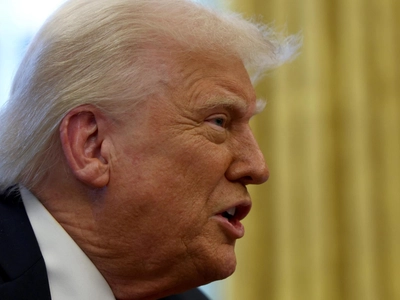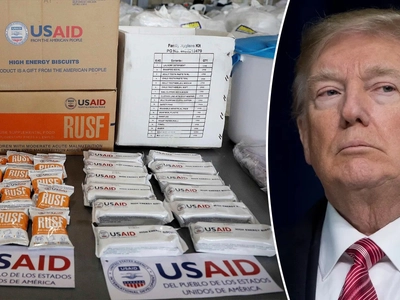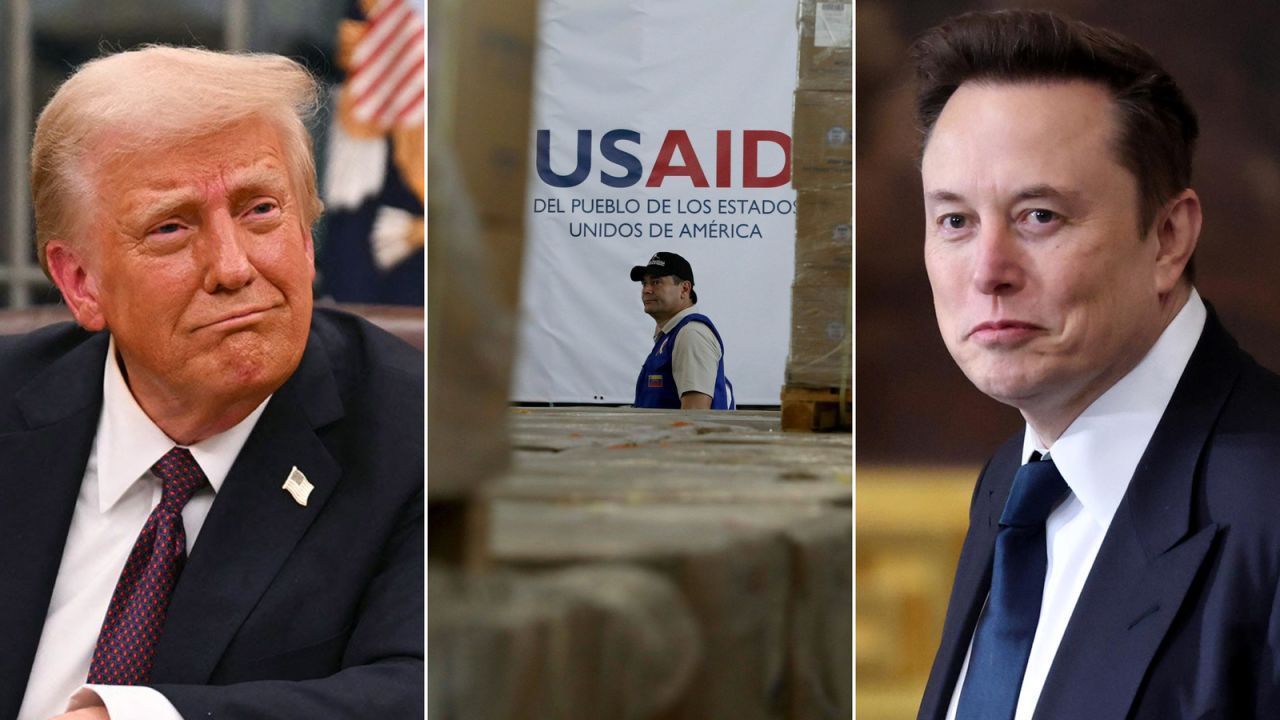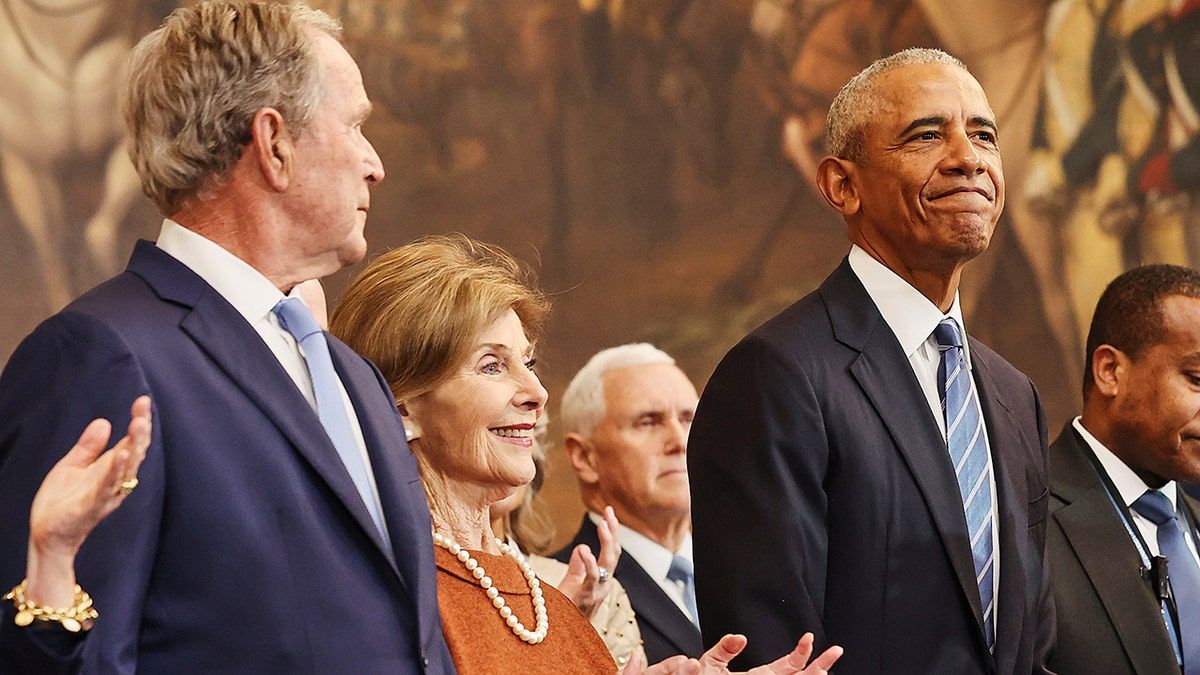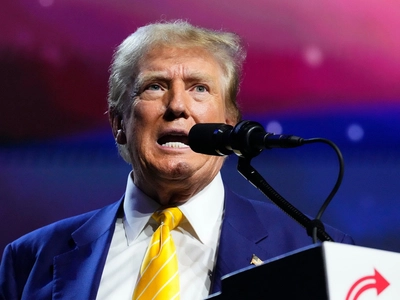Trump’s New War: Military Action Against Latin American Drug Cartels Sparks Diplomatic Firestorm
The war on drugs just took an unprecedented turn that nobody saw coming. While Americans were focused on immigration debates and economic policies, President Trump quietly signed one of the most controversial military orders in modern history—one that has Mexico's government up in arms and foreign policy experts questioning whether we're witnessing the beginning of a new military conflict right in our own backyard.
The Secret Order That Changed Everything
In August 2025, Trump secretly directed the Pentagon to prepare for military force against Latin American drug cartels. But this wasn't just tough talk—it was backed by a game-changing designation. On February 19th, Secretary of State Marco Rubio formally labeled eight criminal organizations as Foreign Terrorist Organizations (FTOs), the same classification reserved for groups like ISIS and Al-Qaeda.
The list reads like a who's who of Latin America's most dangerous criminal networks: the Sinaloa Cartel, Jalisco New Generation Cartel, Gulf Cartel, Northeast Cartel, United Cartels, the Michoacán Family, MS-13, and Venezuela's Tren de Aragua. With the stroke of a pen, these money-making criminal enterprises became official terrorist targets—opening the door for military action that would have been unthinkable just months ago.
Mexico's Furious Response
Mexico's President Claudia Sheinbaum didn't mince words: American troops are NOT welcome on Mexican soil. Period. Her rejection of any U.S. military intervention was swift and absolute, with Mexican senators literally coming to blows during heated debates about the implications of Trump's order.
"It's off the table, absolutely off the table," Sheinbaum declared, making it crystal clear that Mexico considers this a violation of their sovereignty. The message was unmistakable: any American military action on Mexican territory would be viewed as an invasion, not cooperation.
Why This Changes Everything
This isn't your typical "war on drugs" rhetoric. The FTO designation unlocks military capabilities and funding that have never been available before in this fight. It means these cartels can now be treated exactly like ISIS—with all the military firepower, intelligence operations, and international cooperation that comes with terrorism designations.
But here's where it gets complicated: unlike traditional terrorist groups that operate for political ideology, these cartels are profit-driven businesses. They're not trying to establish caliphates or spread religious extremism—they're running multi-billion dollar drug trafficking operations. Critics argue this blurs the line between military action and law enforcement in dangerous ways.

The Dangerous Precedent
History shows us that U.S. military interventions in Latin America have a troubled track record. From the covert operations of the Cold War era to more recent counterinsurgency efforts, many Latin Americans still carry raw memories of American military involvement in their countries. Even well-intentioned operations can trigger massive public backlash and anti-American sentiment that lasts for generations.
Experts warn that Trump's approach could backfire spectacularly. WOLA (Washington Office on Latin America) points out that decades of targeting cartel leaders has already proven ineffective—every kingpin taken down is quickly replaced. The real issues driving cartel power are corruption, weak institutions, and lack of community investment.
What's Really at Stake
This isn't just about drugs anymore. It's about sovereignty, international law, and whether America is willing to risk military conflict with its closest neighbors in the name of fighting cartels. Trump's order represents a fundamental shift from treating this as a law enforcement issue to treating it as a military one.
The implications are staggering. If American forces engage cartels on foreign soil without explicit permission, we could be looking at the biggest diplomatic crisis in North America since NAFTA. Mexico has already made it clear they won't cooperate, which means any action would happen over their strong objections.
The Bottom Line
Trump has essentially declared war on organizations that are deeply embedded in the economies and power structures of multiple Latin American countries. These aren't cave-dwelling terrorists in remote mountains—they're sophisticated criminal enterprises with billions of dollars, military-grade weapons, and the ability to destabilize entire regions.
The question isn't whether Trump has the legal authority to make this designation—he does. The question is whether turning the drug war into an actual war will solve the problem or create an entirely new set of catastrophic problems that could define American foreign policy for decades to come.
One thing is certain: this quiet order has the potential to reshape relationships across the entire Western Hemisphere. And based on Mexico's reaction, that reshaping won't be smooth, cooperative, or welcomed by our neighbors.
The war Trump declared isn't overseas—it's right next door. And our neighbors are already saying "absolutely not" to American boots on their ground.
